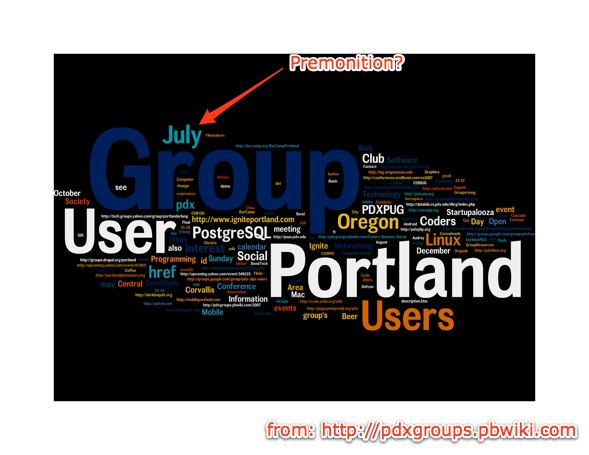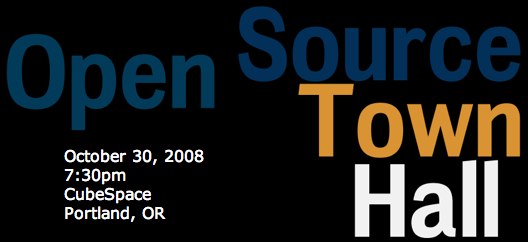Were you sad and dismayed to hear that OSCON was moving out of Portland? Are you looking for more open source events to attend? Would you like an open source conference organized by the community? Want one more tech event to attend in July? Need an excuse (any excuse) to visit lovely Portland, Oregon in July? Do you like to help organize events for fun in your spare time?
If you answered yes to any of my obnoxious questions above, I have a great solution for you: The Open Source Bridge event.
Open Source Bridge will bring together the diverse tech communities of the greater Portland area and showcase our unique and thriving open source environment.
Open Source Bridge will have curated, discussion-focused conference sessions, mini-conferences for critical topics and will include unconference sessions.We will show how well Portland does open source and share our best practices for development, community and connectedness with the rest of the world.
Lots of ideas are buzzing around in our heads, and we’d love to talk about them with you! If you’d like to contribute to the effort, stop by the town hall event October 30, 2008 at Cubespace. We’ll have another meeting November 6th, and it will be announced on Calagator.
At the town hall, you’ll have a chance to meet the members of the core organizing committee, and pick up a responsibility or two. We’ll be breaking off into teams for each of the major areas requiring organization, and distributing the work across many people. We will create a mailing list after this first meeting for those who just want to hear about what we’re up to, or participate in some other way.
(Quote from Selena Deckelmann)
I encourage you to attend the Town Hall to share your ideas with the team and to talk about how you can get more involved in the event. The key to community driven events is that they require a lot of work from volunteers both during the planning stages and on site during the event! If you want this event to be successful, I encourage you to pitch in to help.
Images above are also from Selena Deckelmann.

